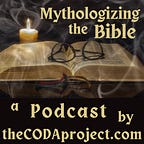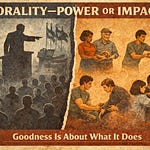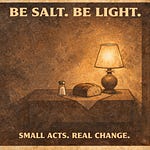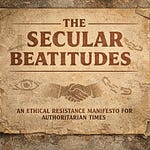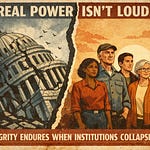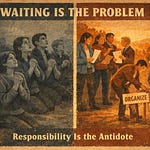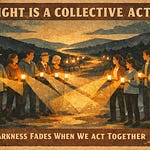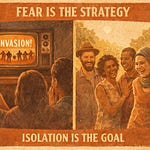Welcome to another Bonus Edition of the MTB podcast—a segment of the weekly episode that I call Afterthoughts! This is one of my favorite parts of these weekly presentations because it gives us a chance to dig a little deeper, connect the dots, and really challenge ourselves to think critically about what we discussed during the main episode.
In today’s main episode, we talked about how stories and leadership shape the way people think and act. We explored how narratives—whether in ancient texts or modern politics—are powerful tools for shaping culture, guiding movements, and sometimes, manipulating people into following dangerous ideologies.
Now, let’s be honest—many of us are feeling frustrated right now. We see the rise of religious extremism, the spread of conspiracy theories, and the way certain groups twist faith to justify exclusion, control, and even outright harm. And what’s worse? It’s working. These movements are gaining power, shaping laws, and influencing public policy. And that’s terrifying because many of the things they advocate for directly threaten democracy, human rights, and even basic decency.
So here’s the big question: We know what we’re against. But what are we for?
How do we push back against extremism without becoming reactionary ourselves? How do we resist without playing the same game—without resorting to anger, fear-mongering, or the same divisive, us-versus-them thinking?
Because, let’s be real—extremist movements thrive on reaction. They want opposition to be loud, emotional, and easily dismissed because it reinforces their narrative of being persecuted truth-tellers. If we just fight fire with fire, we’ll never get anywhere.
So that’s what we’re going to explore in this Afterthoughts session. This isn’t just about fighting back—it’s about building something better.
We’re going to talk about how a single person—yes, you—can help lay the groundwork for a movement rooted in reason, compassion, and ethical leadership. Because change doesn’t start with grand, sweeping actions. It starts small. It starts with how we communicate, how we lead, and how we model the values we actually want to see in the world.
So, let’s get into it. How do we push back without pushing people further away? How do we resist extremism without mirroring its worst qualities? And how do we start building something that can actually last? Let’s talk about it.

